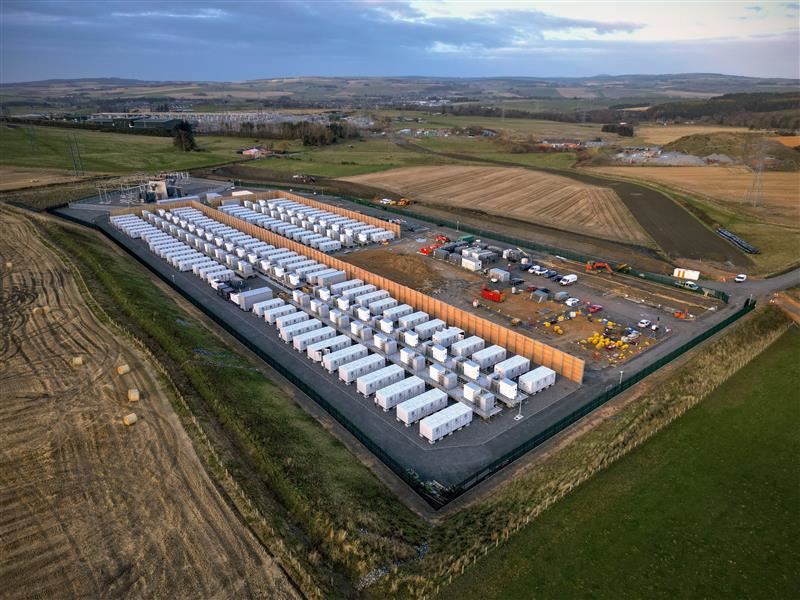
Two grid-scale battery energy storage systems (BESS) have been approved for construction in South Lanarkshire, Scotland.
Apatura announced that its 50MW/100MWh BESS near East Kilbride has been approved by the Scottish Energy Consents Unit (ECU), marking the ninth BESS development it has secured planning permission for in the last 16 months.
The 5.5-acre site was selected primarily for its proximity to the East Kilbride substation. It will consist of 16 battery container units and infrastructure, including transformers and a substation building.
The decision notice stated that the development would have no “significant long-term impacts on the environmental quality of the green belt”.
Apatura’s chief development officer Andrew Philpott commented: “Construction of the project will provide a significant boost to the local East Kilbride economy. It will directly create jobs with the construction, operational, and decommissioning phases of the project, and also indirectly in the supply chain and related services.”
The decision closely follows approval of a 40MW/80MWh BESS in Eaglesham, East Renfrewshire, which brought Apatura’s total consented BESS portfolio to 1.5GW.
Zenobē receives approval for up to 200MW BESS
Documents published on the ECU website yesterday also show that an application for a BESS with an installed capacity of up to 200MW, brought forward by TNEI Services Limited (TNEI) on behalf of Zenobē Energy, has been approved.
The 12-hectare site will comprise up to 34 BESS units and supporting technology, to connect at the nearby Coalburn Substation via underground cabling.
A screening opinion was issued in August 2022 advising that the development would not require an environmental impact assessment. South Lanarkshire Council, the planning authority for the area, recommended the plans for approval.
Planning documents submitted in June 2023 state that National Grid had provided an early connection date of June 2026.
Geographically, Scotland is a competitive area for BESS development due to the high amounts of wind generation in the country that cannot be exported across the boundary to England due to the insufficient transmission network.
A way to mitigate this is the provision of large-scale BESS, to store excess electricity generated by wind power plants to discharge when needed.
Zenobē has several BESS developments in the pipeline for Scotland. In March, it announced its 200MW/400MWh Blackhillock BESS had commenced commercial operations, the largest of its kind to do so in Europe.

